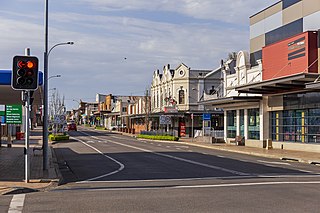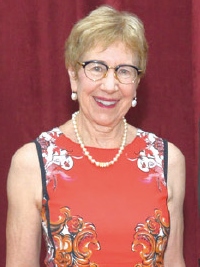Related Research Articles

Kings Cross is an inner-eastern locality of Sydney, New South Wales, Australia. It is located approximately 2 kilometres east of the Sydney central business district, in the local government area of the City of Sydney. It is bounded by the suburbs of Potts Point, Elizabeth Bay, Rushcutters Bay and Darlinghurst.

Cessnock is a city in the Hunter Valley of New South Wales, Australia, about 52 km (32 mi) by road west of Newcastle. It is the administrative centre of the City of Cessnock LGA and was named after an 1826 grant of land called Cessnock Estate, which was owned by John Campbell. The local area was once known as "The Coalfields", and it is the gateway city to the vineyards of the Hunter Valley, which includes Pokolbin, Mount View, Lovedale, Broke, Rothbury, and Branxton.
The Bureau of Crime Statistics and Research (BOCSAR), also known as NSW Bureau of Crime Statistics and Research, is an agency of the Department of Communities and Justice responsible for research into crime and criminal justice and evaluation of the initiatives designed to reduce crime and reoffending in the state of New South Wales, Australia.

Michael Bruce Baird is an Australian investment banker and former politician who was the 44th Premier of New South Wales, the Minister for Infrastructure, the Minister for Western Sydney, and the Leader of the New South Wales Liberal Party from April 2014 to January 2017.
Illicit drug use in Australia is the recreational use of prohibited drugs in Australia. Illicit drugs include illegal drugs, pharmaceutical drugs when used for non-medical purposes, and other substances used inappropriately. According to government and community organisations, the use and abuse, and the illegality, of illicit drugs is a social, health and legal issue that creates an annual illegal market estimated to be worth A$6.7 billion. Estimates made in 2022 place the figure at A$11.3 billion per year.

Margaret Joan Beazley,, is an Australian jurist who is the 39th and current governor of New South Wales, serving since 2 May 2019. She was the president of the New South Wales Court of Appeal, the first woman to hold the office, from 2013 until February 2019.
The history of gangs in Australia goes back to the colonial era. Criminal gangs flourished in The Rocks district of Sydney in its early history in the 19th century. The Rocks Push was a notorious larrikin gang which dominated the area from the 1800s to the end of the 1900s. The gang was engaged in running warfare with other larrikin gangs of the time such as the Straw Hat Push, the Glebe Push, the Argyle Cut Push, the Forty Thieves from Surry Hills, and the Gibb Street Mob.
Indigenous Australians are both convicted of crimes and imprisoned at a disproportionately higher rate in Australia, as well as being over-represented as victims of crime. As of September 2019, Aboriginal and Torres Strait Islander prisoners represented 28% of the total adult prisoner population, while accounting for 2% of the general adult population. Various explanations have been given for this over-representation, both historical and more recent. Federal and state governments and Indigenous groups have responded with various analyses, programs and measures.
Robert Godier Bottom,, better known as Bob Bottom, is a retired Australian investigative journalist and author.

The Bail Act 1978 is a former New South Wales law that has been repealed, and replaced with the Bail Act 2013. While it was considered "groundbreaking" when enacted, it has been reformed several times to increase a presumption against bail.

Under Australia's law, methamphetamine is a Schedule 8 drug, available for medical use but restricted in manufacture, supply, and possession. The drug is sought after to give oneself a ‘high’ or a ‘rush’ in their body. Users of this drug often feel senses of exhilaration and arousal as the brain is flooded with monoamines. Methamphetamine has many names not only in Australia, but also around the world. These include chalk, crypto, gear, getgo, tweak, and cristy, although the two most common ones in Australia today are speed and ice. Speed refers to the powder form of the drug, while ice refers to the highly purified, crystalline form. The powder form is often diluted with adulterants including glucose and sucrose.

The Sydney lockout laws were introduced by the Government of New South Wales from February 2014 to January 2020 in the CBD and Oxford Street with the objective of reducing alcohol-fuelled violence. The legislation required 1.30am lockouts and 3am last drinks at bars, pubs and clubs in the Sydney CBD entertainment precinct. The precinct, defined in regulations, was bounded by Kings Cross, Darlinghurst, Cockle Bay, The Rocks and Haymarket.

Keep Sydney Open (KSO) was an organisation and political party based in Sydney, Australia, that advocated for issues surrounding the city's nightlife and night-time economy. The group is best known for its opposition to the Sydney lockout laws. It was renamed to The Open Party in 2020.
Criminal activity in New South Wales, Australia is combated by the New South Wales Police Force and the New South Wales court system, while statistics about crime are managed by the NSW Bureau of Crime Statistics and Research. Modern Australian states and cities, including New South Wales, have some of the lowest crime rates recorded globally with Australia ranked the 13th safest nation and Sydney ranked the 5th safest city globally. As of September 2018 the City of Penrith (475.7) and City of Blacktown (495.1). Rural areas have comparatively high crime rates per 100,000 with rural shires such as Walgett Shire (1350.3) and Moree Plains Shire (1236.2) having some of the highest violent crime rates in the state. The overall NSW crime rate has been in steady decline for many years.
In the Australian legal system, a good behaviour bond is a type of non-custodial sentence which involves the condition of the offender's "good behaviour" for a set period. The condition of "good behaviour" primarily requires the offender to obey the law, but may also include additional probation officer supervision, mandatory medical treatment or participation in rehabilitation, counselling and intervention programs. These imposed conditions are determined by state legislation and at the magistrate's discretion. A good behaviour bond may be established with or without a recorded legal conviction for the offence. The specific conditions which constitute a good behaviour bond, as well as the consequences for breaching them, vary under each Australian state or territory's legislation, but overall are used most commonly for first-time and juvenile offenders.
The War on Music is a phrase coined by Australian media to refer to the implementation of new laws by the New South Wales (NSW) Government with regard to the use of illicit drugs at concerts and music festivals. These proposed legislative changes come in response to a number of drug-related incidents occurring within Australian festivals. In response to these changes, NSW state politics has become divided on what actions are in the best interest of the state. With both support and opposition to the proposed laws, there is uncertainty as to what will happen to the future of Australia's music festival industry.
Thomas Kelly was an eighteen-year-old male from Sydney, Australia, who was the victim of a random one-punch assault as he walked down Victoria Street in Kings Cross, New South Wales, on 7 July 2012. Kelly was taken to St. Vincent's Hospital with serious head injuries and remained in intensive care for two days. He never regained consciousness, and died at 7:59pm on 9 July 2012. His attacker, nineteen year old Kieran Loveridge, was charged and convicted of manslaughter in 2014.
Alcohol Beverages Australia (ABA) is an Australian non-profit membership–based organisation that represents retailers, producers and manufacturers of alcohol in Australia. The current president is Greg Holland and its CEO is Andrew Wilsmore.
The Women's Domestic Violence Court Assistance Scheme, commonly referred to by its initialism WDVCAS, comprises a network of organisations in New South Wales which information, advocacy and safety planning for women and their children who are escaping from or in danger of domestic violence. It is a key frontline support service. The Women's Domestic Violence Court Advocacy Service is the New South Wales Government organisation that provides funding and support for the WDVCASes, and ensures that they are operating according to their mandate. It was established in South Australia in July 2015.
References
- ↑ Professor Donald Weatherburn, unsw.edu.au. Retrieved 11 September 2021.
- ↑ Annual Report 2009: Academy of the Social Sciences , socialsciences.org.au. Retrieved 10 September 2021.
- ↑ Newington College Register of Past Students 1863-1998 (Syd, 1999) pp 210
- ↑ Dr Don Weatherurn, sydney.edu.au. Retrieved 10 September 2021.
- ↑ "News update - Don Weatherburn is leaving BOCSAR". BOCSAR. Archived from the original on 11 October 2019. Retrieved 11 October 2019.
- ↑ "It's An Honour - Honours - Search Australian Honours". Australian Honours Database. Retrieved 13 June 2011.
- ↑ Don Weatherburn, theconversation.com. Retrieved 10 September 2021.
- ↑ "Lockout laws a demonstrated effective weapon against alcohol abuse and violence", The Sydney Morning Herald , 18 April 2015. Retrieved 12 May 2020.
- ↑ Gladstone, Nigel (9 September 2019). "Thousands of recorded drug busts in NSW never happened". Sydney Morning Herald. Retrieved 11 October 2019.
- ↑ The Vanishing Criminal, mup.com.au. Retrieved 10 September 2021.